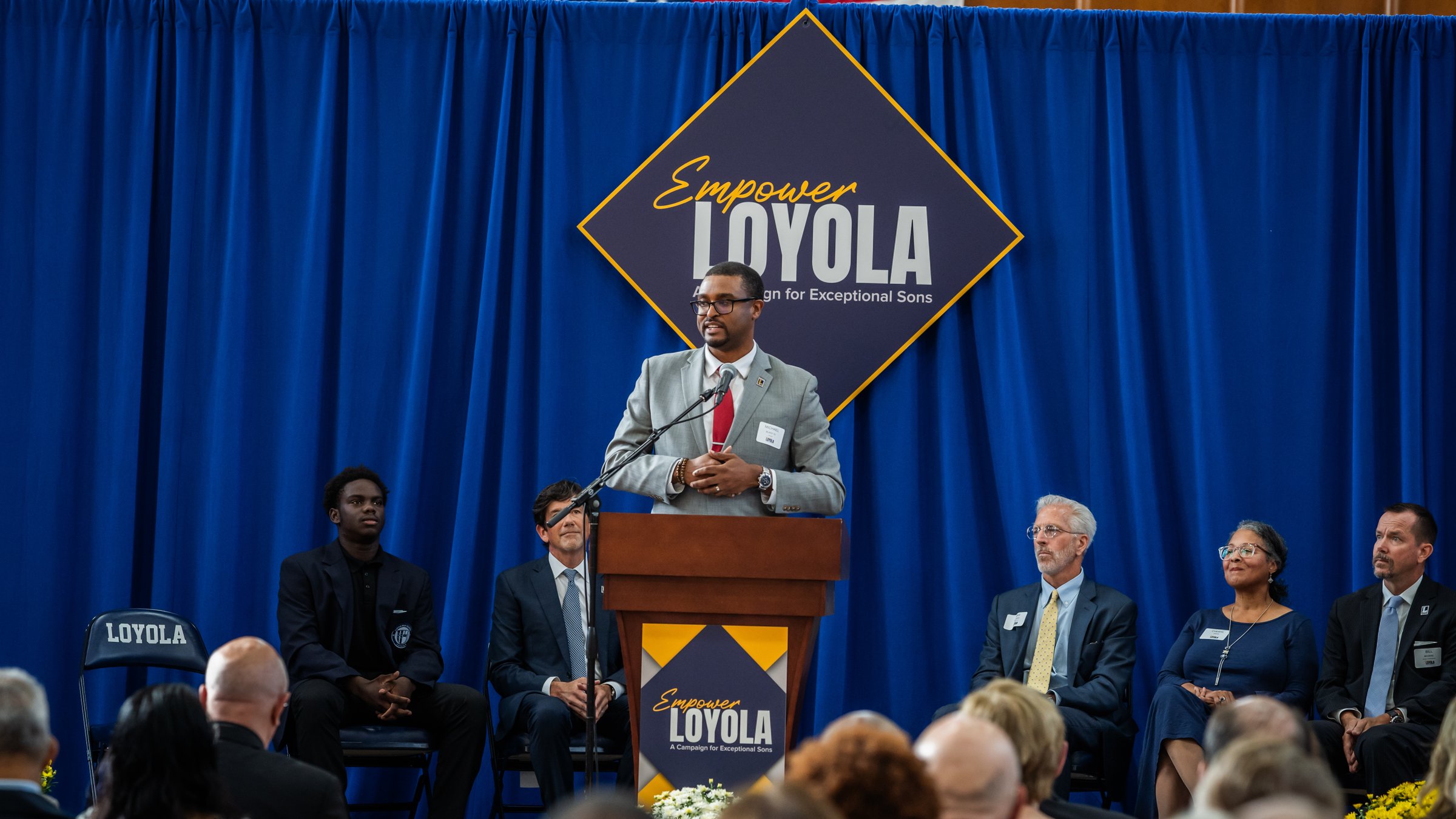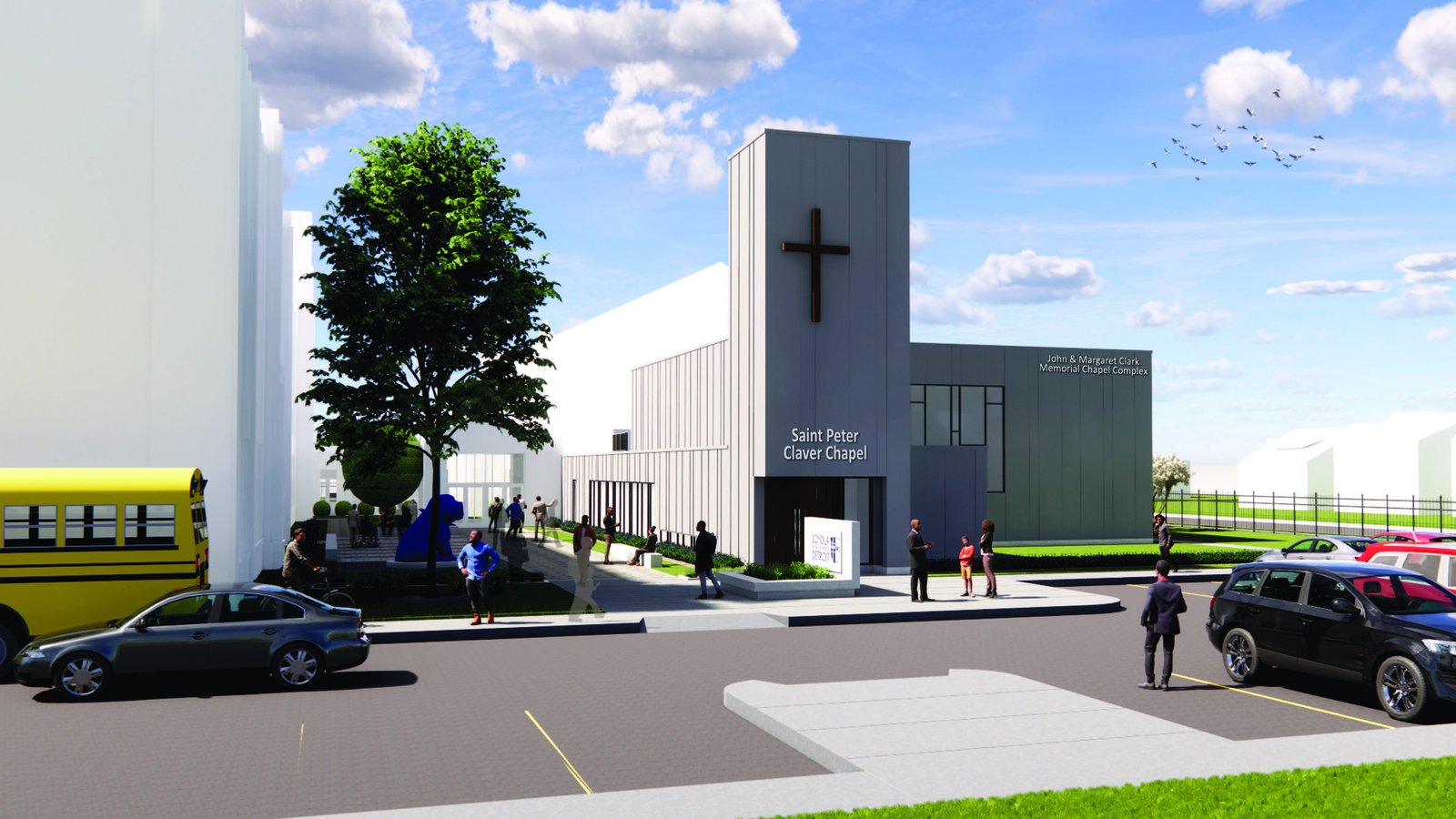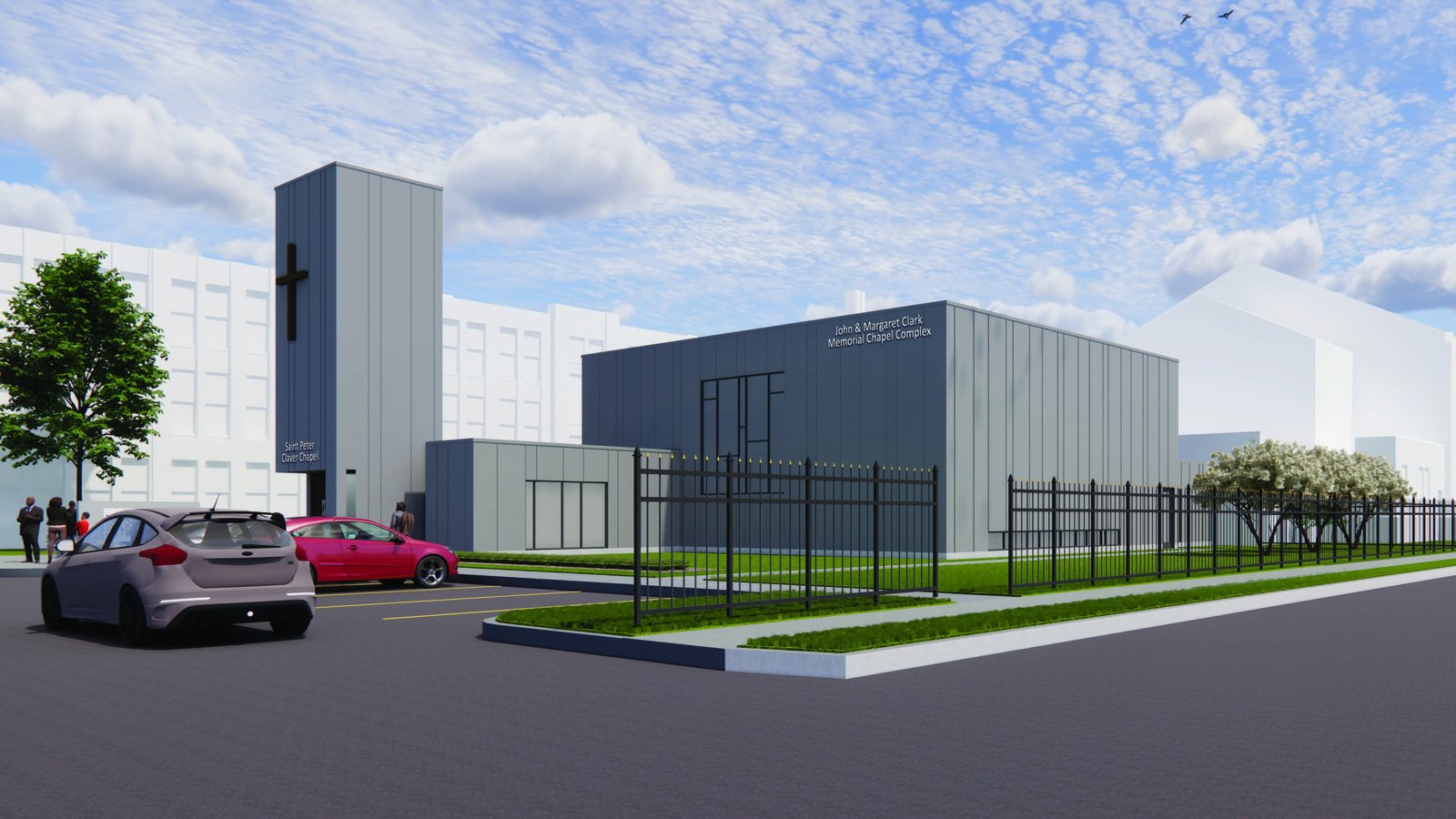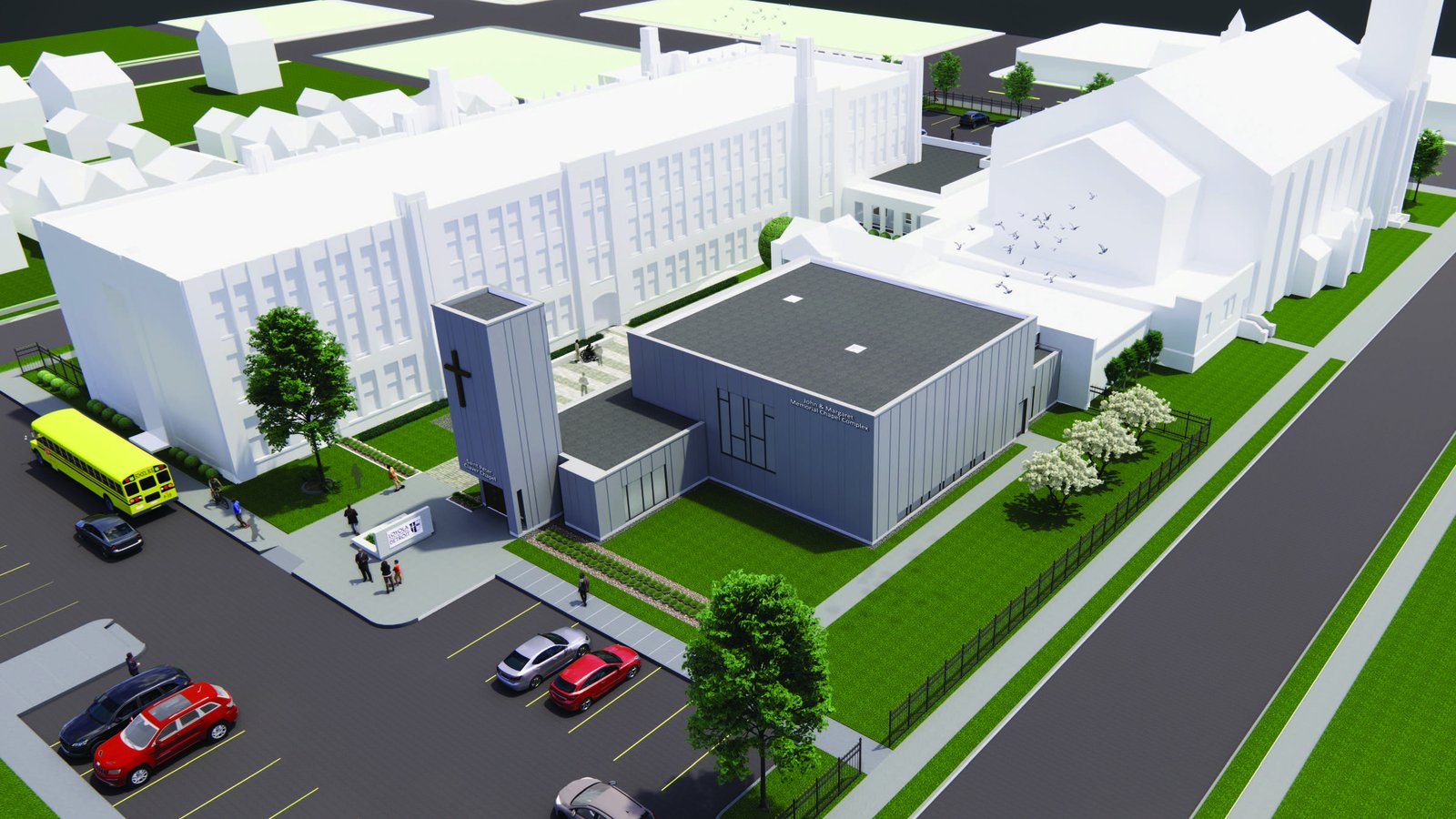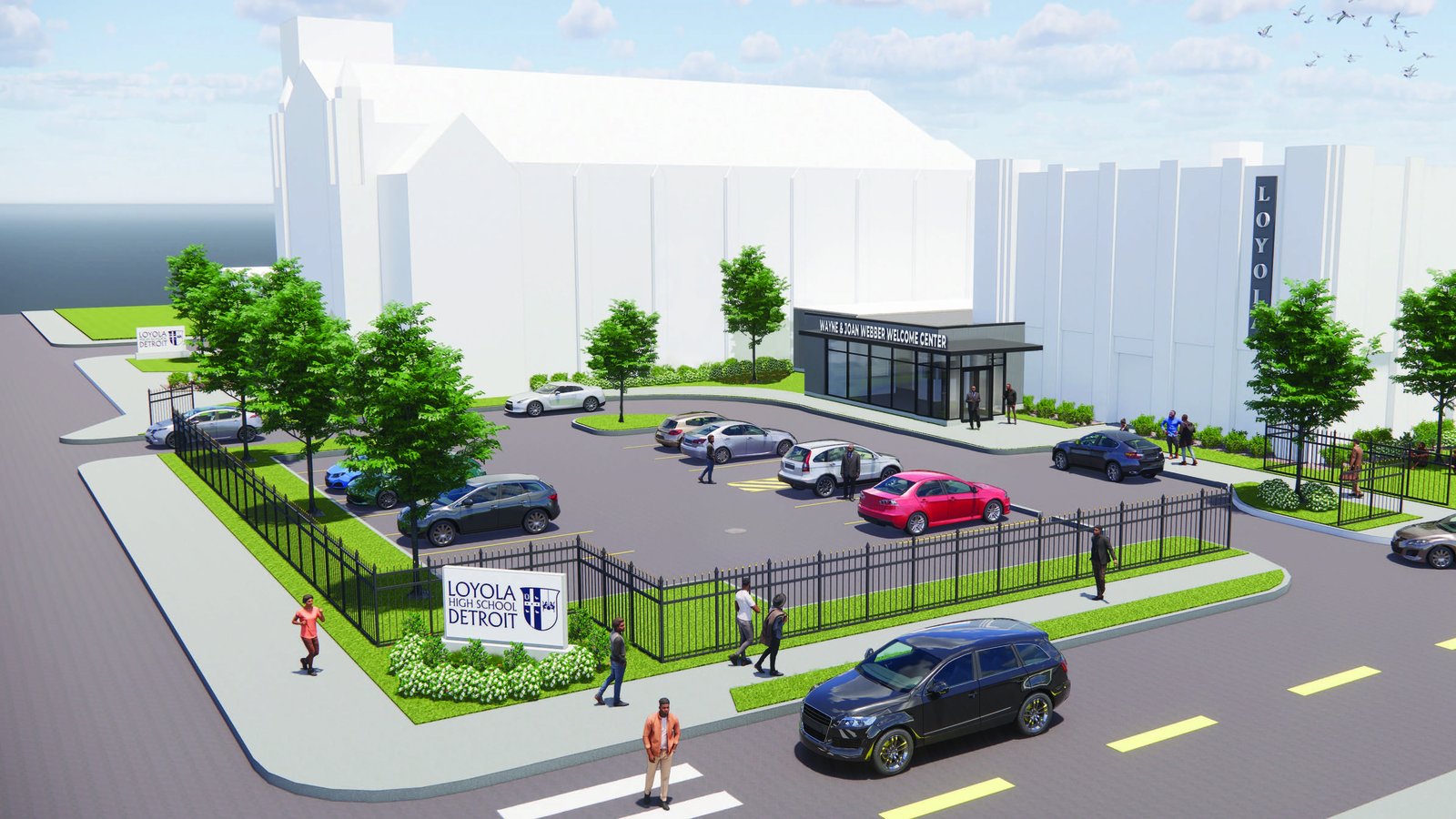Northwest Detroit Jesuit school breaks ground on new 200-seat chapel, which also will serve as home to St. Peter Claver Parish
DETROIT — Loyola High School has launched a $9 million capital campaign to renovate its campus, secure scholarship funding, bolster teacher development and solidify the Jesuit-run school’s commitment to northwest Detroit.
Loyola President Dave Smith announced the public phase of “Empower Loyola: A Campaign for Exceptional Sons” at a public event at the school Sept. 13, detailing the three-part campaign, which will see $6.5 million go to campus improvements — including a new chapel — $1.5 million to student tuition assistance and $1 million to faculty development.
“To the people who are looking to invest in Catholic education in the city of Detroit, think about the 'Empower Loyola' campaign,” Smith said. “If you are interested in the development of youth and young men in the city of Detroit, think about Loyola. If you are interested in supporting the construction of a new Catholic chapel in the city of Detroit, think about Loyola.”
The centerpiece of the campaign is the construction of a new 200-seat chapel on campus where the school’s weekly prayer gatherings and monthly Masses will take place, as well as be the home of St. Peter Claver Parish, which used to gather on campus in the original chapel before its roof collapsed in 2018.
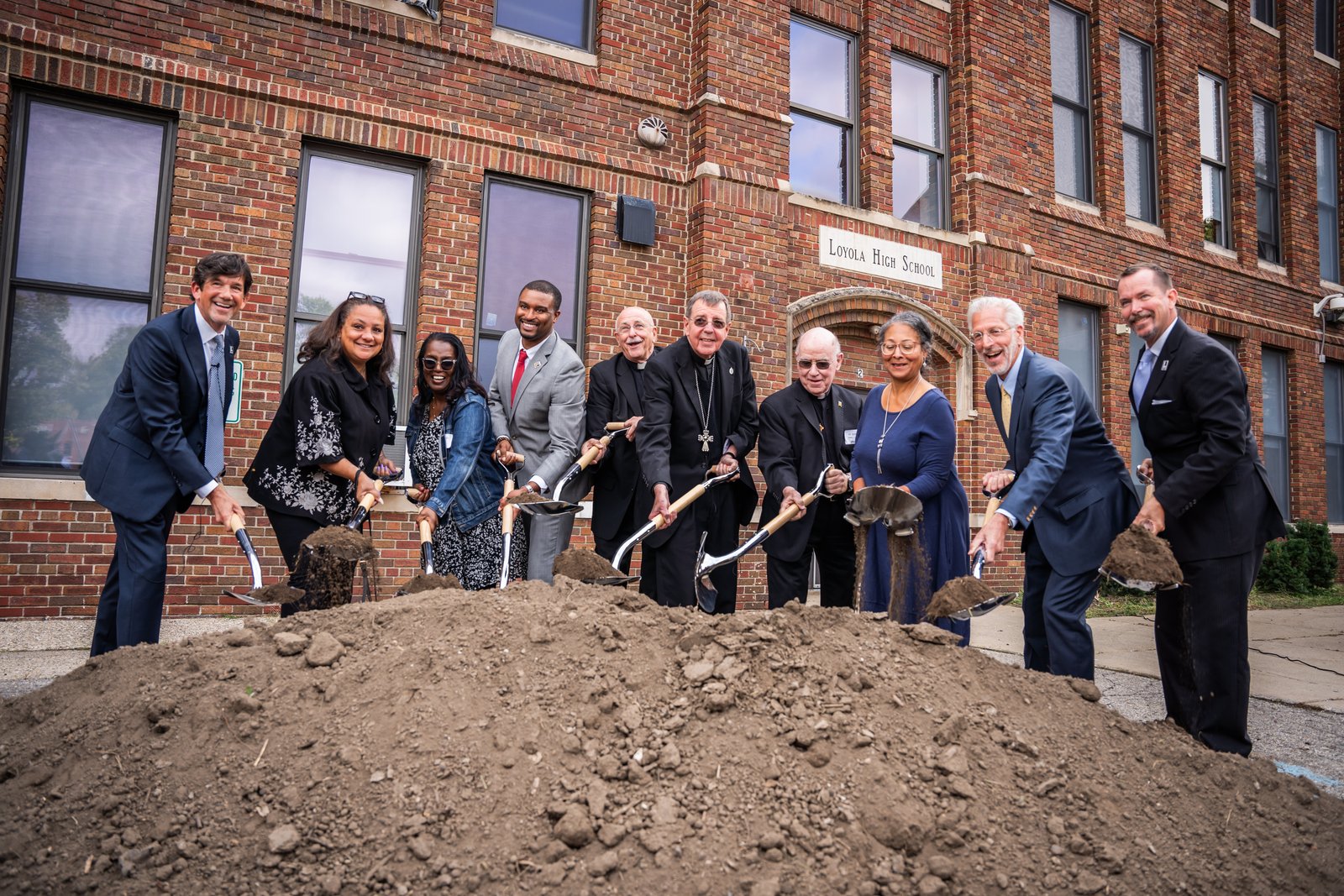
Loyola’s chapel will be the first Catholic chapel or church built in the city of Detroit since the 1960s.
“There is a great joy for me that the 'Empower Loyola' campaign will include this Catholic chapel, the first to be built in the city of Detroit in many years, and something the school most willingly shares with the parish,” Archbishop Allen H. Vigneron said during a groundbreaking ceremony Sept. 13. “To me, this cooperation is paradigmatic for what we can hope for our schools and our parishes. I look forward to the way the parish community and the Family of Parishes in the Trinity Vicariate can work together. I’m very grateful to you, Fr. John (Phelps, CSSR, pastor of St. Peter Claver) and your leadership in helping the parish engage with the school.”
Loyola has been celebrating Mass in the school’s fieldhouse, which used to be St. Frances de Sales Parish, while the St. Peter Claver Catholic Community has been operating out of the chapel on the campus of the former Marygrove College, which is now The School at Marygrove, a Detroit Public Schools Community District School, since the college closed in 2019.
Loyola worked with Fr. Gilbert Sunghera, SJ, adjunct professor of architecture at the University of Detroit Mercy, who specializes in the architecture of sacred spaces, along with Sr. Esther Mary Nickel, RSM, director of sacred worship for the Archdiocese of Detroit, in designing the new chapel, which will be named after St. Peter Claver.
The new chapel, planned to be completed in early 2025, will feature Stations of the Cross from the closed St. Philomena Parish in Detroit and will serve as a community gathering space for the St. Peter Claver community after Sunday liturgies.
“The needs and design of the chapel were worked through a planning committee of which we had involvement,” Fr. Phelps said. “The Jesuits have good leadership showing through, and they understand the architecture and design need to be more sensitive to the African-American presence and spirituality of St. Peter Claver Catholic Community.”
The chapel will have administrative space from which the parish can operate and organize community meals in Loyola’s commons area.
Fr. Phelps said the parish looks forward to returning to a more permanent “home” — the parish is a result of the merger between Precious Blood and St. Frances de Sales parishes and originally worshipped at Precious Blood’s location until it moved to the Loyola campus chapel.
Since the parish began worshipping at Marygrove following the roof collapse in 2018, Fr. Phelps said the community has been embracing the Unleash the Gospel mantra of “mission over maintenance,” as Archbishop Vigneron says in his pastoral letter, with the parish focusing on community outreach as opposed to the upkeep of a building.
“We really have bought into Unleash the Gospel and the whole idea of being sent,” Fr. Phelps said. “We’ve had less preoccupation about maintenance and more on being sent on mission. We’ve always been about being sent on mission here in northwest Detroit to all the citizens of northwest Detroit, not just parishioners.
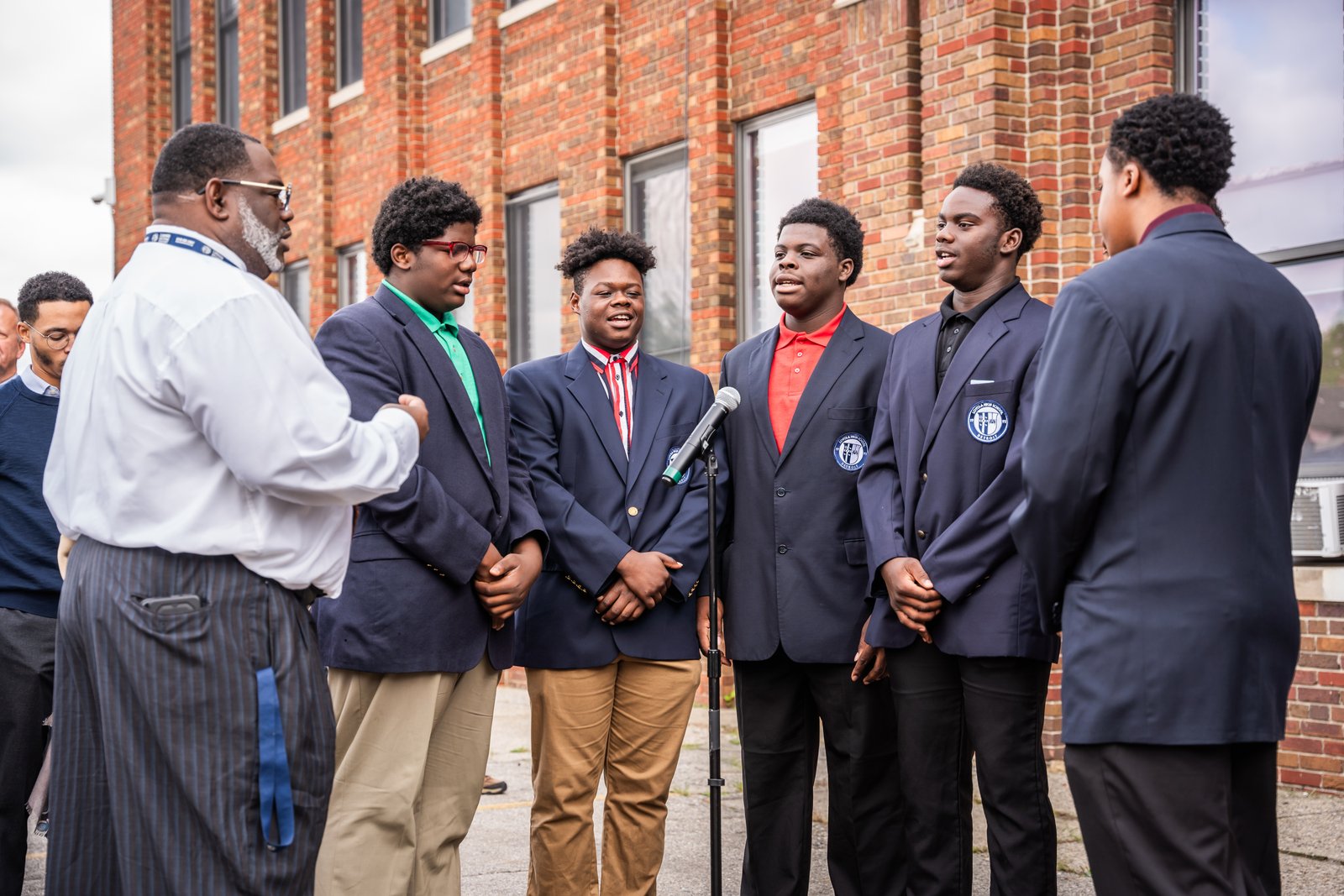
“But we are excited to have a sense of ownership to go along with the spirituality,” Fr. Phelps continued. “To be part of the campus of Loyola High School, an expression of the Catholic faith’s commitment to developing people through quality education. We’re going to be much stronger being on campus, building a close relationship with the school.”
Strengthening Catholic education in the city
The second phase of the "Empower Loyola" campaign involves raising funds for scholarships to help cover tuition costs.
It costs $20,000 a year to educate a student, with that sum being covered by Loyola’s Work Experience Program, in which students work a certain number of hours per week with a corporate partner to offset the cost of tuition, as well as support from the Archdiocese of Detroit and the Society of Jesus, and tuition fees, which vary from $500 to $4,300, with the average family paying $1,200, depending on the family’s financial situation.
To make this funding operation viable, the school must generate 55% of its operating budget from donors, making the student tuition assistance fund a critical part of the campaign, Smith said.
“More than half of our budget comes from fundraising,” Smith said. “We are very blessed to have a strong donor base we’ve developed over the last 30 years. But with a project like this, we are looking for more, new supporters. Most Catholic high schools now rely heavily on alumni who go out and do well and give back in a spirit of philanthropy. Our earliest graduating class was 1997, so we are seeing green shoots of our alumni who are doing well and giving back, but we still need to reach out to the larger community and find people who believe in Loyola’s mission.”
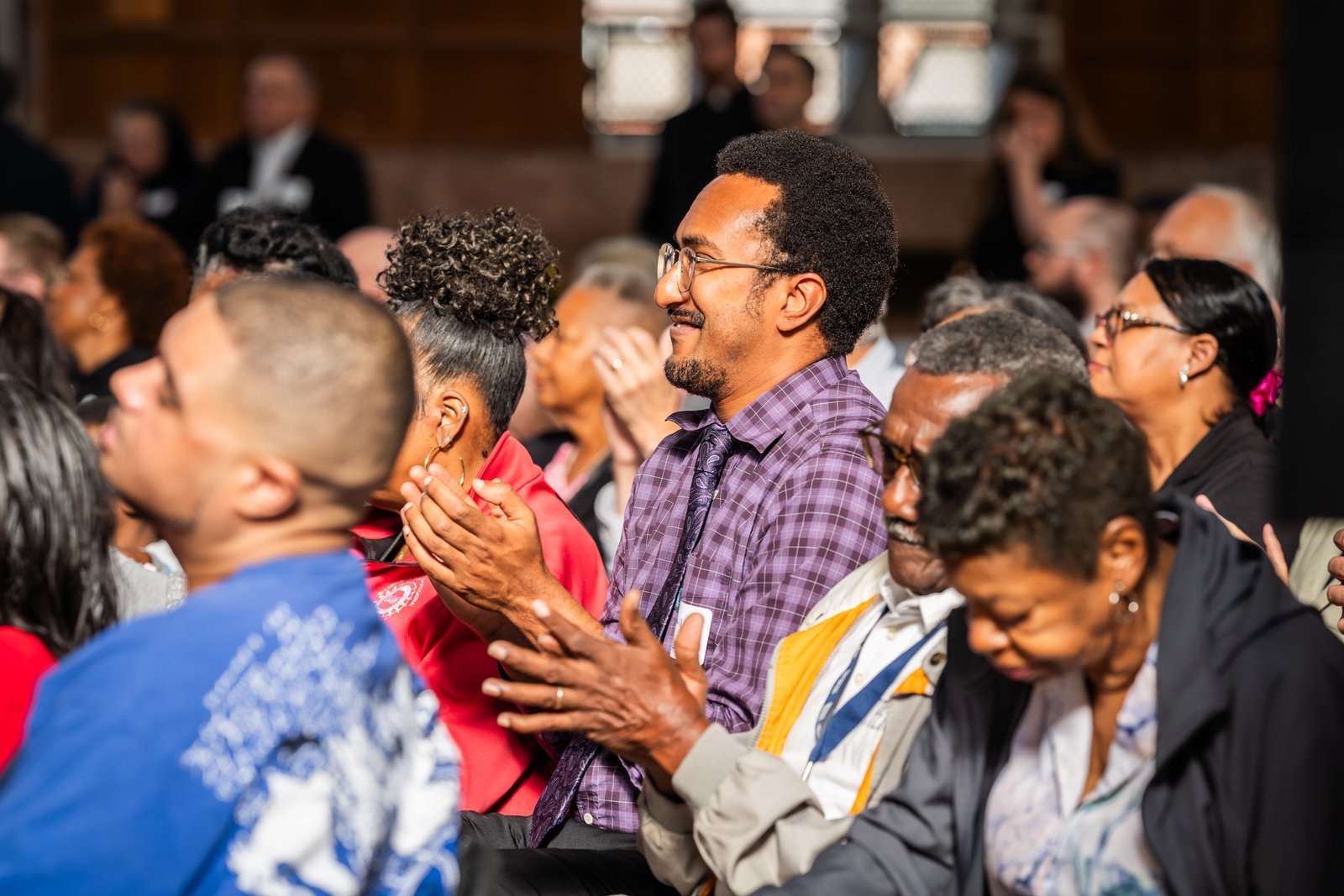
Part of courting donors is inviting them to Loyola’s campus so they can see the students and teachers and the impact the school is having on the city.
Loyola has 16 full-time teachers and 150 students at the last count, offering a 10:1 student-to-teacher ratio, a cornerstone of the school’s 100% college acceptance rate among graduates over the past 13 years. Founded in 1993, Loyola is the only school in Metro Detroit jointly sponsored by the Archdiocese of Detroit and a religious order, the Jesuits.
Smith said donors are constantly impressed with the professionalism and quality of teachers at Loyola, which leads to the campaign's third goal: teacher retention.
“When you meet our teachers, you see they are here for more than just a paycheck,” Smith said. “They are here to help our young men. But nonetheless, we have to be competitive. In order to keep pace and retain and recruit new teachers, over the past few years, we have made adjustments to our salaries.
"We may not pay as high as public school districts, but we feel we offer a total package that is really compelling,” Smith added. “We provide a very nice benefits package from the Michgian Catholic Conference. But importantly, we offer a workplace where teachers like to be. Teachers like smaller class sizes, which we have here. They can spend time with the entire class and give the individual attention students need.”
The "Empower Loyola" campaign strives to put Loyola in a position where it continues to have a positive impact on the young men they teach, and the Bethune Community Neighborhood it has called home for 30 years.
The plan calls for the creation of a new welcome center on Fenkell Avenue that will be more noticeable, welcoming and secure, as opposed to the current entrance on Pinehurst which can be difficult to find and poses challenges during student pick up and drop off.
“When we were planning a welcome center a few years back, we had two main objectives: convenience for our parents and reaching out to the community,” Smith said. “Our biggest street is right in front of us, Fenkell, and we wanted to both literally and symbolically establish more of our presence in the neighborhood."
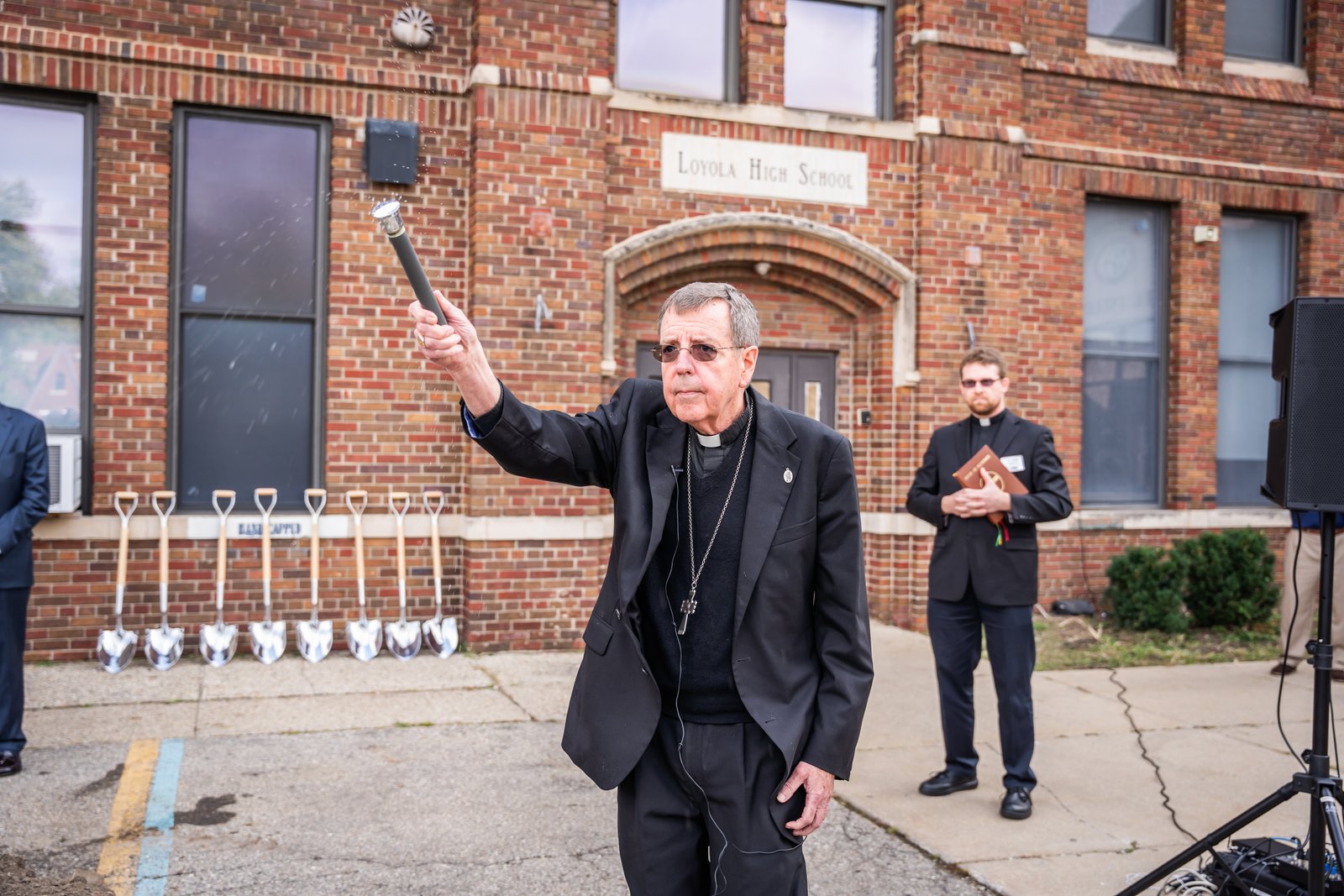
The single entrance on Fenkell will have a glass façade designed to be a more secure, a welcoming space for parents to pick up and drop off students, and for community members to visit us a common gathering area.
Smith announced at the public event that $6.5 million has been raised during the silent part of the campaign — roughly 75 percent of the total goal. The "Empower Loyola" website is now live for donors to visit.
Archbishop Vigneron commended Smith and Loyola’s leadership on the success of the campaign so far, with construction set to begin days after the ceremonial groundbreaking, saying the "Empower Loyola" campaign is emblematic of the local Church’s commitment to spreading the Gospel in northwest Detroit.
“It’s not just about sharing a building between a parish and the school," Archbishop Vigneron said. "(Smith) talked about the neighborhood and engagement between the school and the parish with the community. I want to thank everyone involved with that creative dimension. I’m here to pledge the continued support of the Archdiocese of Detroit. I know Fr. (Karl) Kiser (provincial of the Midwest Jesuits) is not with us here today, but with a sense of Jesuit appropriateness, he’ll be able to top us in gratitude. I’m grateful the Catholic Church, the archdiocese and the Jesuits, are able to be partners.”
When Detroit Cardinal Adam J. Maida and Jesuit provincial Fr. Joseph Daoust, SJ, opened Loyola High School to serve the underserved, marginalized male population of Detroit, the school was meant to transform boys into "men for others," men for Detroit, Smith said.
The "Empower Loyola" campaign is meant to cement that legacy, Smith said.
“The most important thing this campaign will do is reinforce fundamentally what this place is all about,” Smith said. “It’s a place of Catholic education in the Jesuit tradition, making sure we continue to serve the families we’ve served for 30 years. There is still a need for Loyola to be here in this neighborhood, and we want to be prepared to serve these students. This campaign will create a better experience for students, securing our campus, building the students spiritually, and continuing to have great teachers here for a long time.”
Copy Permalink
Catholic schools


